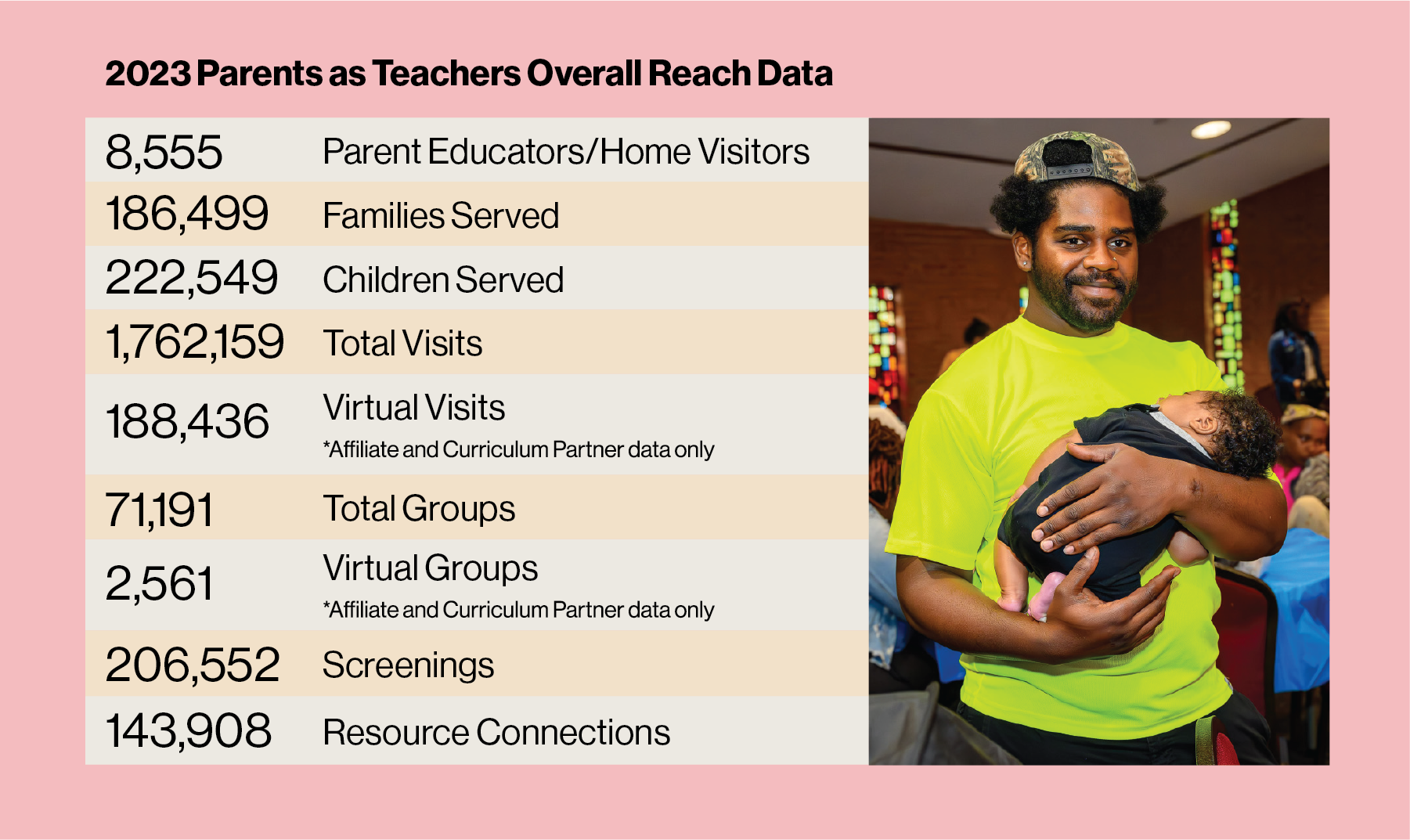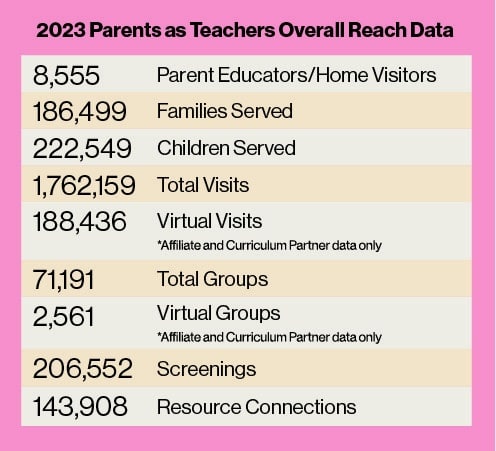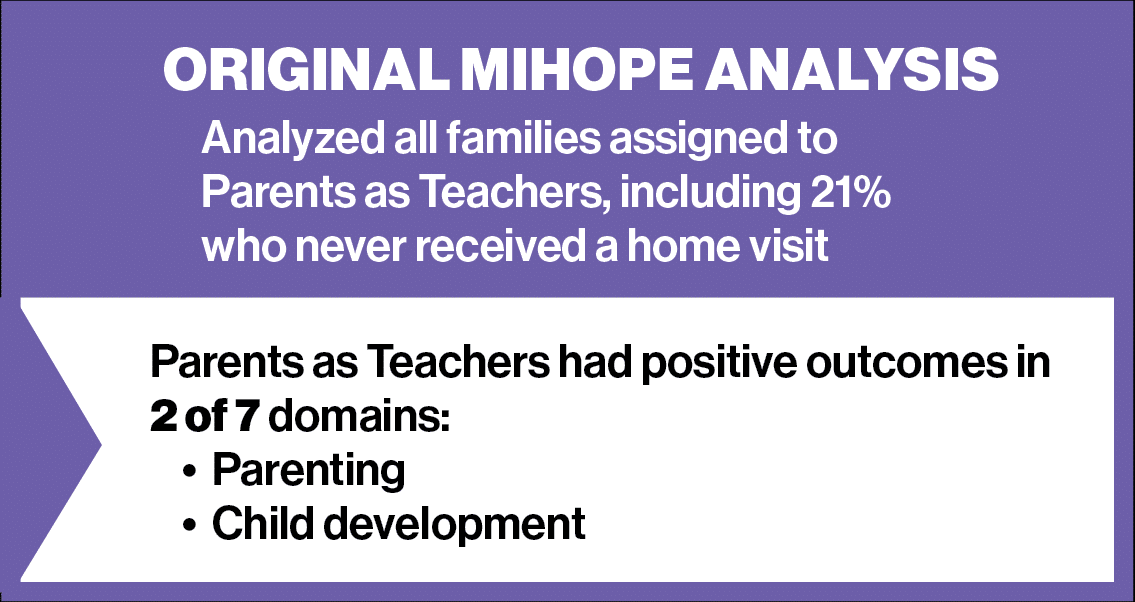Research and Data Analysis
Research and Data Analysis
Four new model goals adopted
In recognition of more recent data and evidence, Parents as Teachers expanded its model goals from four to seven to reflect its positive impact on overall family health and well-being, as well as improving economic and educational outcomes for parents and caregivers.
There are four components to the Parents as Teachers model:
-
- Personal Visits
- Group Connections
- Resource Network
- Child and Caregiver Screening
Together, they form a comprehensive set of services with seven goals/outcomes. The original and additional goals include:
- Increase parent knowledge of early childhood development and improve positive parenting practices
- Provide early detection of developmental delays and connection to services
- Prevent child abuse and neglect
- Increase children’s school readiness and success
- Improve parent, child, and family health and well-being
- Improve family economic well-being
- Strengthen community capacity and connectedness
The expanded goals reflect the work Parents as Teachers’ home visiting professionals were already doing with families and the impact its home visiting experts are having on families, children, and communities.
New insight from exploring MIHOPE data
The Mother and Infant Home Visiting Program Evaluation (MIHOPE) study provides a comprehensive assessment of home visiting in the United States. This was a legislatively mandated randomized controlled trial of four home visiting models (Early Head Start, Healthy Families America, Nurse Family Partnership, and Parents as Teachers). Using an intent to treat approach, MIHOPE likely underestimates the impact of home visiting. For instance, 21% of MIHOPE families assigned to Parents as Teachers did not actually receive any home visiting, yet they were included in the Parents as Teachers treatment group analysis. Using this approach, the original MIHOPE study found Parents as Teachers had a positive impact on family outcomes in two domains: child development and parenting.
A new analysis conducted by researchers from James Bell Associates limited the treatment group to Parents as Teachers families who received at least three months of home visiting, using propensity score matching to create a well-matched comparison group. Limiting the treatment group in this way – while still controlling for selection bias – shows Parents as Teachers produces a more robust set of family outcomes across five domains including: child development, child health, child maltreatment, family self-sufficiency, and parenting.
Parents as Teachers curriculum is used optionally across other home visiting models. MIHOPE tracked curricula used and identified local programs across all models in the study that used the Parents as Teachers curriculum with the families they served. Researchers from James Bell Associates investigated the impact of the use of the Parents as Teachers curriculum and found that across all models using it, there were consistent positive outcomes found in four domain areas: parenting, child development, child maltreatment, and family economic self-sufficiency. These findings suggest that the Parents as Teachers curriculum itself had a positive impact on these outcomes independent of the home visiting model. A summary of the full results was presented at the most recent Parents as Teachers conference. A manuscript including all findings has been submitted for publication in a peer-reviewed journal.
There are some exciting results! Some of the new findings provide additional evidence and rationale for the expansion of the Parents as Teachers model goals.
New insight from exploring MIHOPE data
The Mother and Infant Home Visiting Program Evaluation (MIHOPE) study provides a comprehensive assessment of home visiting in the United States. This was a legislatively mandated randomized controlled trial of four home visiting models (Early Head Start, Healthy Families America, Nurse Family Partnership, and Parents as Teachers). Using an intent to treat approach, MIHOPE likely underestimates the impact of home visiting. For instance, 21% of MIHOPE families assigned to Parents as Teachers did not actually receive any home visiting, yet they were included in the Parents as Teachers treatment group analysis. Using this approach, the original MIHOPE study found Parents as Teachers had a positive impact on family outcomes in two domains: child development and parenting.
A new analysis conducted by researchers from James Bell Associates limited the treatment group to Parents as Teachers families who received at least three months of home visiting, using propensity score matching to create a well-matched comparison group. Limiting the treatment group in this way – while still controlling for selection bias – shows Parents as Teachers produces a more robust set of family outcomes across five domains including: child development, child health, child maltreatment, family self-sufficiency, and parenting.
Parents as Teachers curriculum is used optionally across other home visiting models. MIHOPE tracked curricula used and identified local programs across all models in the study that used the Parents as Teachers curriculum with the families they served. Researchers from James Bell Associates investigated the impact of the use of the Parents as Teachers curriculum and found that across all models using it, there were consistent positive outcomes found in four domain areas: parenting, child development, child maltreatment, and family economic self-sufficiency. These findings suggest that the Parents as Teachers curriculum itself had a positive impact on these outcomes independent of the home visiting model. A summary of the full results was presented at the most recent Parents as Teachers conference. A manuscript including all findings has been submitted for publication in a peer-reviewed journal.
There are some exciting results! Some of the new findings provide additional evidence and rationale for the expansion of the Parents as Teachers model goals.









